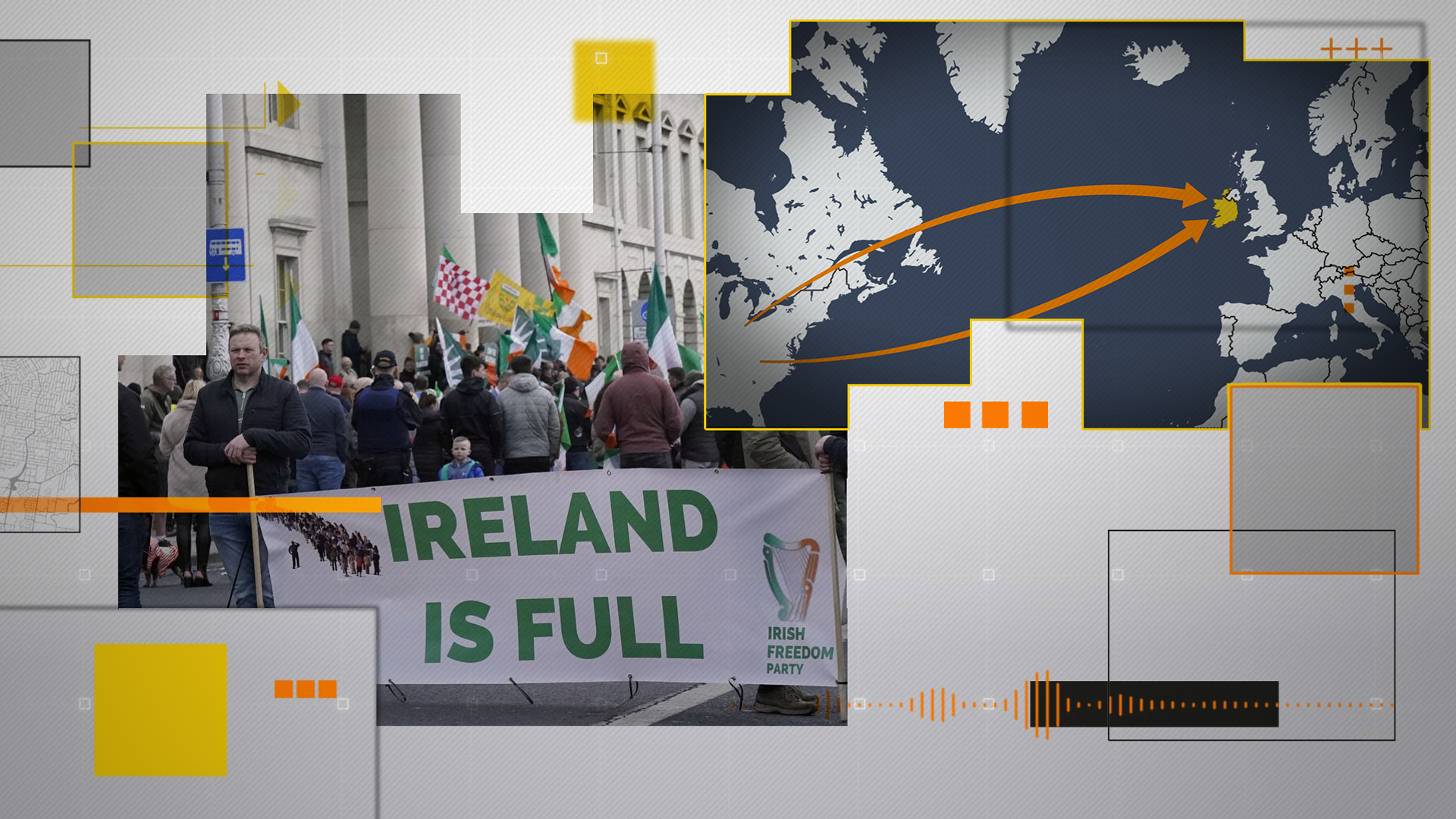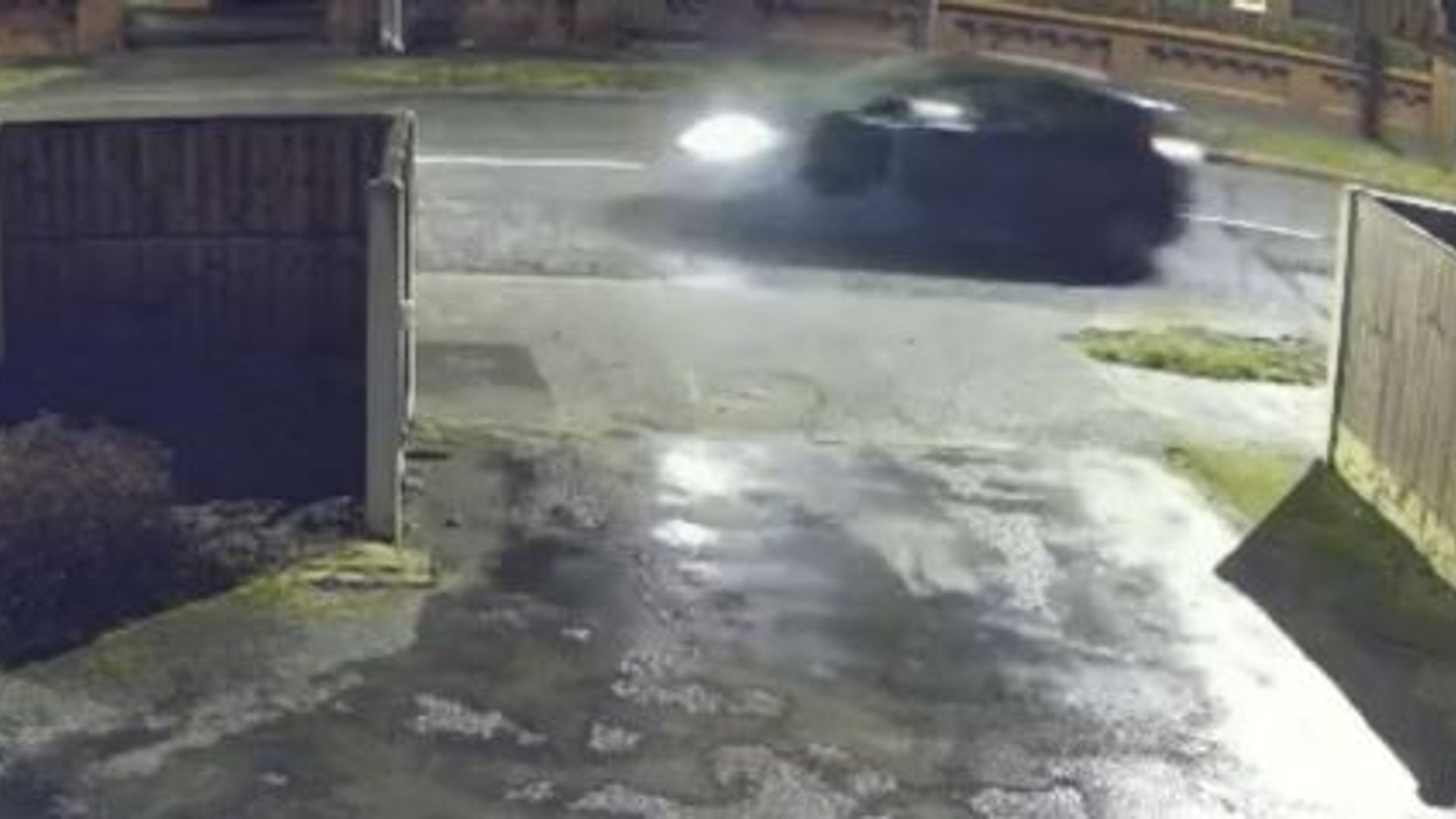“When Finn was born, I turned to Ruth and said, just wait. He’ll cry, he’ll cry… But he never did,” says Martin, wiping tears from his eyes.
Warning: This article contains distressing content.
His wife, Ruth, had just given birth to their first son. But after a traumatic delivery, Finn was born pale and limp, needing urgent resuscitation.
Ruth was also injured, suffering a birthing tear so severe it required surgery.
As the room at the London-based birthing centre flooded with doctors ready to whisk their son away, Martin asked his wife: “What do you want me to do? Stay with you, or go with Finn?”
Follow Finn, she told him. As the plastic cot containing his newborn son was wheeled out of the room, a sense of helplessness swept over him. “There was nothing I could do for either of them,” he says, his voice breaking.
While we talk, both Ruth and Martin break down in tears, taking turns to comfort each other, but when I ask if they want to take a break, they refuse. They are clear that what matters now is sharing Finn’s story.
“He was our first,” says Ruth, adding that she had no idea what to expect from the birth in June 2021. “Everyone was still coming out of COVID times.”
Despite this, she said the pregnancy “was smooth sailing”.
“It was when we turned up for the actual birth that things went horribly wrong.”
Ruth gave birth to Finn at the Oasis Birth Centre, a midwife-led unit within the Princess Royal University Hospital in Orpington, Bromley. It is mainly used for women with uncomplicated pregnancies, with access to birthing pools, massages and aromatherapy.
If extra care is needed during labour, patients are transferred to a delivery suite which the hospital trust’s website says is “just seconds away”.
The website adds that it intends to give parents the “control and support” they need and a place where they can “feel at home”.
But that wasn’t Ruth’s experience.
From the moment she entered the building, she says: “I wasn’t being listened to.”
Despite her labour progressing quickly and feeling the “overwhelming” urge to push, Ruth says, the midwives largely left her and Martin alone in the birthing pool with no real guidance.
“I remember on a couple of occasions saying to Martin, ‘Why are they not with us? Why are they not telling us what to do?'” she adds.
During this period, midwives failed to identify that Finn was in foetal distress.
Tragically, he suffered a severe brain injury as a result of complications during labour. He was starved of oxygen, a condition called hypoxic-ischemic encephalopathy (HIE).
Read more from Sky News:
Women ‘failed at every stage’ of maternity care
Mother left with injuries after giving birth breaks ‘silence’
Ruth and Martin would later learn that midwives failed to check Finn’s heart rate in line with national guidelines. There should have been at least 24 readings, but only eight were recorded.
One of his biggest regrets, says Martin, is that during the birth he told Ruth: “They are the professionals. We need to trust them.”
The brain damage Finn experienced during birth was so severe, consultants eventually recommended turning off the support that was keeping him alive.
Instead of leaving hospital with their beautiful baby boy, Ruth and Martin, in a deep state of shock, left with a memory box containing mementoes including a lock of Finn’s hair.
“No one expects that,” she adds tearfully.
“Finn had a blessing done by a vicar,” Martin recalls. “Then later that day, we turned his ventilator off and held him while he died.”
Ruth and Martin are now also parents to their second son, Remy, who has brought joy back into their lives. They are taking care to ensure the 17-month-old knows all about his big brother.
“We have Finn’s pictures around the house. Martin handmade the cot for Finn. It’s got his name engraved in it, and Remy uses it now,” Ruth says. “And we had Finn’s handprint made into a stamp so we can include him in birthdays and Christmas cards.”
The inquest into Finn’s death concluded on 25 April, Ruth’s birthday.
Coroner Dr Julian Morris found there was a lack of clear leadership at the birthing centre, and a failure to follow established guidelines in place. He committed to writing to all birth centres across London to give recommendations.
“If other birthing centres operate like that three years later, the likelihood is that more children will die as a result of poor care, understaffing, and a lack of leadership and management,” says Martin.
King’s College Hospital NHS Foundation Trust apologised to the Kennedy family and said it “fully accepts” the coroner’s findings.
Tracey Carter, director of midwifery for King’s College, said: “In recent years, we have made positive changes to maternity services at the trust, including a review of midwifery staffing, enhanced training for midwives and ensuring more senior supervision in the department at all times.”
But Martin thinks the same guidance needs to be given to birthing centres across the country, to help avoid future tragedies.
Keep up with all the latest news from the UK and around the world by following Sky News
For now, their focus is on their family, and getting justice for Finn.
Be the first to get Breaking News
Install the Sky News app for free
“You have to carry on,” Martin says. “You have to pick yourself up and make sure you try and get justice for your children.”











